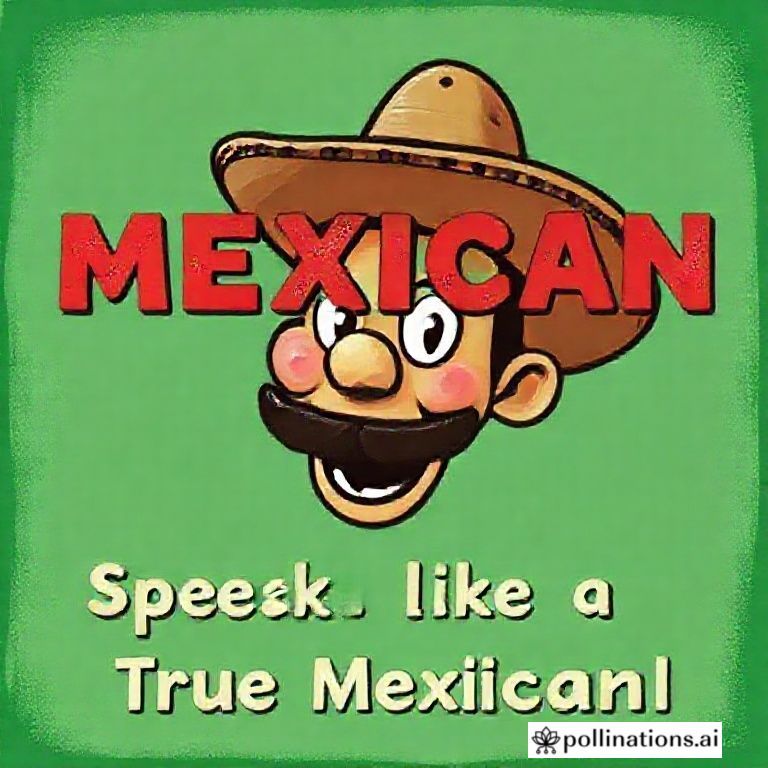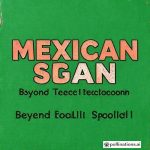Learning Spanish in a classroom is a great start, but it only gets you so far. To truly connect with people and understand the nuances of everyday conversation in Mexico, you need to learn the local slang. Mexican slang is colorful, expressive, and often hilarious. It’s the key to unlocking a deeper understanding of the culture and fitting in with the locals. So, ditch the textbook phrases and get ready to expand your vocabulary with these 50 essential Mexican slang words!
This isn’t your typical Spanish lesson. We’re diving headfirst into the vibrant world of Mexican slang. From playful insults to terms of endearment, this list will equip you with the words and phrases you won’t find in any textbook. Prepare to impress your Mexican friends and navigate conversations like a pro!
Basic Mexican Slang
Let’s start with some fundamental slang words that you’ll hear frequently in Mexico. These are the building blocks of casual conversation and essential for understanding the local flavor.
“¿Qué onda?”
This is the Mexican equivalent of “What’s up?” or “How’s it going?”. It’s a common greeting and a great way to start a conversation in a relaxed and informal setting.
“Chido/a”
This word means “cool,” “awesome,” or “great.” You can use it to describe anything you like, from a new song to a delicious meal. For example, “¡Qué chido tu coche!” (Your car is so cool!).
“Órale”
This versatile word has many meanings depending on the context. It can mean “okay,” “right on,” “hurry up,” or even “wow!” You’ll hear it used in countless situations, so pay attention to how it’s used to grasp its full range.
“Güey/We”
This is the Mexican equivalent of “dude” or “guy.” It’s used casually between friends and acquaintances. Be careful using it with strangers or in formal settings, as it can sometimes be considered impolite.
“No manches”
This phrase expresses disbelief or surprise. It’s like saying “No way!” or “You’re kidding me!” Use it when you hear something unbelievable or shocking.
Slang for Everyday Situations
Now, let’s look at some slang words you can use in various everyday scenarios. These will help you navigate social situations with ease and confidence.
“Ahorita”
This word literally means “right now” or “in a little while,” but in Mexico, it can mean anything from “soon” to “maybe never.” The exact meaning depends on the context and the speaker’s tone. Don’t rely on “ahorita” if you need something done immediately!
“Cruda”
This is the Mexican word for a hangover. If you’ve had a few too many tequilas, you’ll definitely be feeling “crudo/a” the next day.
“Neta”
This word means “truth” or “for real?” You can use it to ask if someone is being serious or to emphasize that you’re telling the truth. “¿Es neta que ganaste la lotería?” (Is it for real that you won the lottery?).
“Chamba”
This is a common word for “job” or “work.” If someone asks you “¿Qué haces para la chamba?”, they’re asking what you do for a living.
“Lana”
This slang term refers to “money.” So, if you’re short on “lana,” you’re broke.
Funny and Expressive Slang
Mexican slang is full of colorful and expressive words that add humor to conversations. Here are a few of the funniest and most unique terms you’ll encounter:
“Codo/a”
This word describes someone who is stingy or cheap. It literally means “elbow,” but figuratively it refers to someone who keeps their money close to their body.
“Metiche”
This word describes someone who is nosy or meddlesome. They’re always sticking their nose into other people’s business.
“Sangrón/ona”
This word describes someone who is arrogant, conceited, or thinks they’re better than everyone else.
“Chilango/a”
This term refers to someone from Mexico City. It’s sometimes used affectionately, but can also be used in a derogatory way depending on the context and the speaker.
“Pinche”
This is a versatile and somewhat vulgar word that can mean “damn,” “fucking,” or “crappy.” Use it with caution, as it can be offensive in some situations.
Terms of Endearment
Mexicans are known for being affectionate, and their slang reflects this. Here are a few common terms of endearment you might hear:
“Mi amor”
This literally means “my love.” It’s a common term of endearment used between couples, friends, and even family members.
“Cariño/a”
This word means “darling” or “sweetheart.” It’s another affectionate term used to show fondness.
“Gordo/a”
This literally means “fat,” but it’s often used as a term of endearment, especially between couples. Don’t take it literally!
“Flaco/a”
Similar to “gordo/a,” this means “skinny” and can be used affectionately, even if the person isn’t actually skinny.
“Mijo/a”
This is a shortened version of “mi hijo/a” (my son/daughter). It’s often used by older people to address younger people in a friendly and affectionate way.
Conclusion
Learning Mexican slang is an ongoing process, but this list provides a solid foundation for understanding and participating in everyday conversations. Don’t be afraid to use these words and phrases – the locals will appreciate your effort to connect with their culture. Remember to pay attention to the context and the speaker’s tone to fully grasp the meaning of each word. With a little practice, you’ll be speaking like a true Mexican in no time!
If you enjoyed learning these Mexican slang words, share this article with your friends and family who are also learning Spanish. Let’s spread the fun and help everyone speak like a true Mexican!
IMAGE: A vibrant street scene in Mexico City. A group of young adults are gathered around a street food vendor, laughing and talking animatedly. The vendor is serving tacos from a colorful cart. The atmosphere is lively and friendly. The style is realistic and captures the energy of the city. Warm, sunny lighting.


